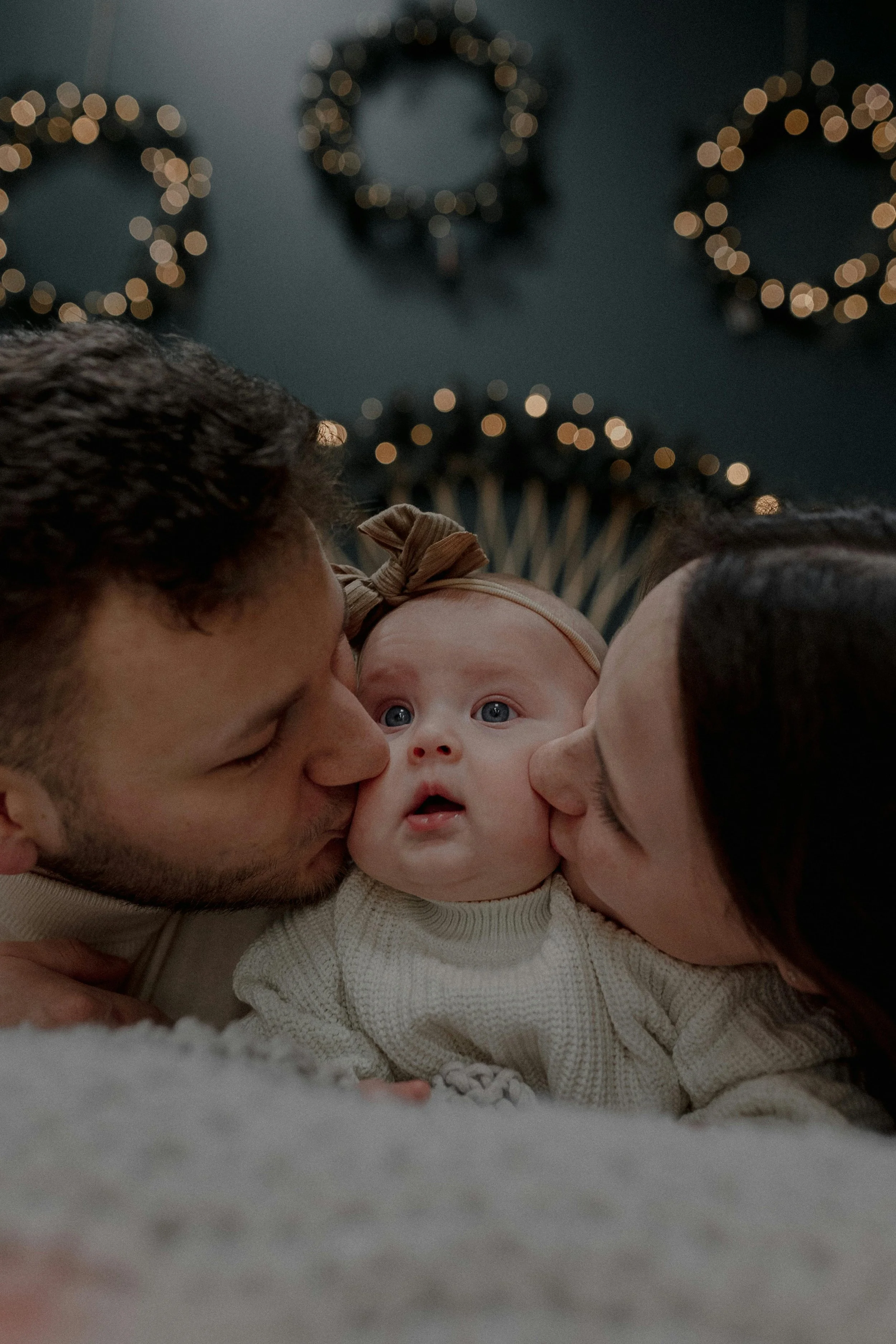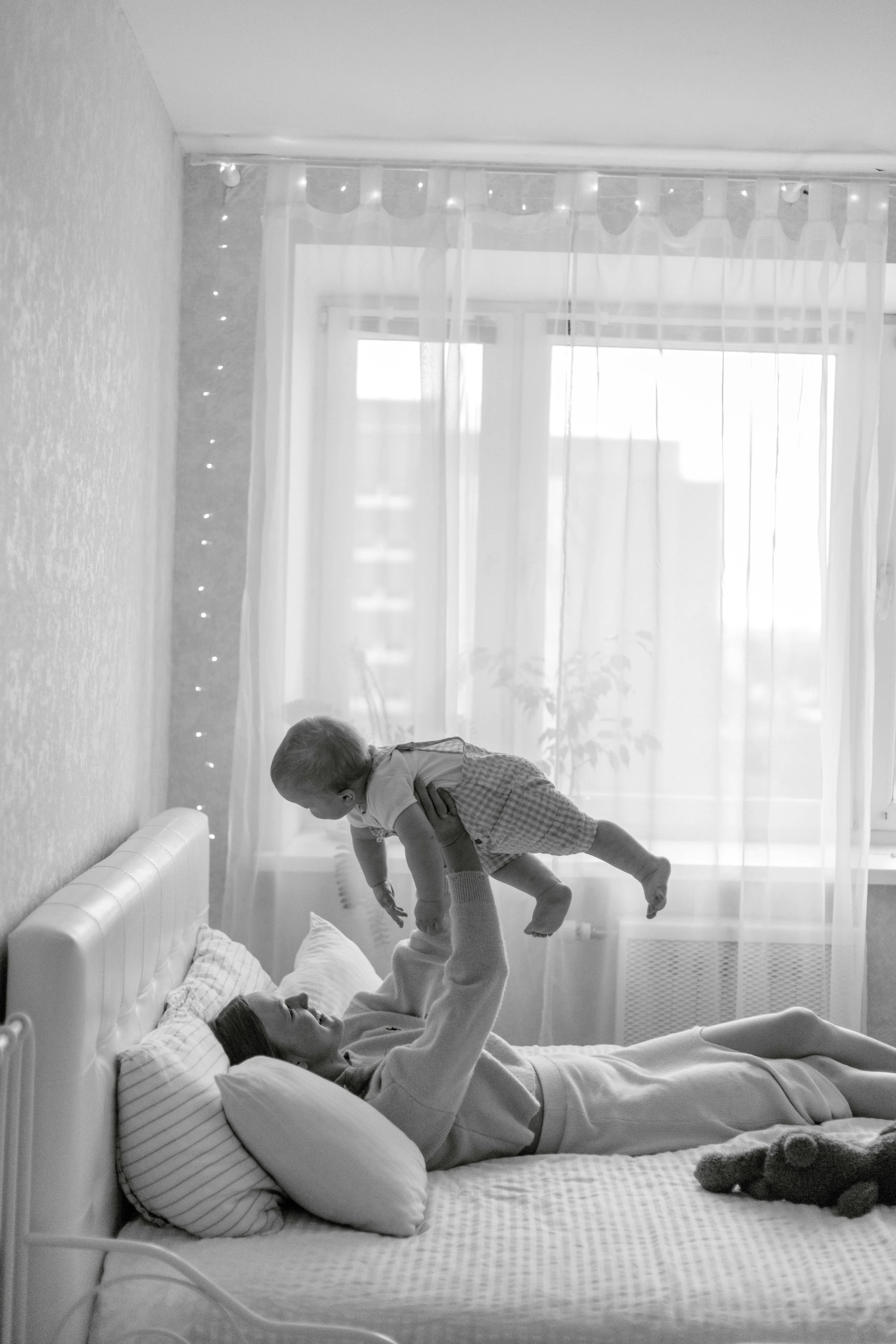The 4-Month Sleep Regression
What’s Happening and How to Survive It
No one prepares you for how suddenly everything changes.
One day, your baby is sleeping longer stretches, and you finally start feeling human again. Then, almost overnight, they wake up every hour, fight every nap, and refuse to stay asleep. You’re exhausted, frustrated, and wondering:
"What am I doing wrong?"
The answer? Nothing.
You’ve just entered the 4-month sleep regression, and while it’s one of the toughest phases, it’s also a sign that your baby is growing, learning, and developing exactly as they should.
Let’s break it all down—why it happens, when it starts, and most importantly, how to get through it without losing yourself in exhaustion.
What Is the 4-Month Sleep Regression?
The 4-month sleep regression is a major developmental milestone where your baby’s sleep cycles change permanently.
Newborns sleep in deep, restorative sleep almost all the time. But at around four months, their sleep matures to be more like an adult’s—meaning they start cycling between light sleep and deep sleep every 45-60 minutes.
The problem? Babies don’t know how to smoothly transition between cycles yet. This means they often wake up fully at the end of each sleep cycle, instead of drifting back to sleep.
This sudden change can lead to:
✔️ More frequent night waking’s
✔️ Shorter, more disrupted naps
✔️ Fussiness around sleep times
And it can feel like a massive step backward in sleep progress. But don’t worry—it’s not.
It’s actually a step forward.
Are Sleep Regressions Based in Science?
Yes! Sleep regressions are a real, biologically driven process that happens because of brain development.
At four months, babies are:
🧠 Learning to cycle through light and deep sleep
👀 Becoming more aware of their surroundings
💡 Developing memory and cognitive skills
These changes affect sleep patterns in a big way. So if your baby’s sleep suddenly falls apart, it’s not because they’ve forgotten how to sleep—it’s because their brain is adjusting to a whole new way of sleeping.
When Does the 4-Month Sleep Regression Start? Can It Start Early?
The 4-month sleep regression typically starts between 3.5 to 5 months of age.
However, some babies show signs as early as 12-14 weeks (especially if they were born early), while others may not experience it until closer to 5 months.
No two babies are the same, but if your baby was previously sleeping well and suddenly starts waking frequently, you’re likely in the thick of it.
Why Does the 4-Month Sleep Regression Happen?
This regression isn’t just a “phase” your baby will grow out of—it’s actually a permanent shift in how they sleep.
There are three main reasons why sleep gets disrupted:
Maturing Sleep Cycles – Your baby is now experiencing full sleep cycles and waking more often.
Increased Awareness – They’re more alert, distracted, and interested in the world (which can make falling asleep harder).
Stronger Sleep Associations – If your baby relies on rocking, feeding, or holding to fall asleep, they’ll now expect the same every time they wake.
What Are the Signs of the 4-Month Sleep Regression?
If you’re wondering whether your baby is going through this regression, look for these common signs:
✔️ Frequent Night Wakings – Suddenly waking every 1-2 hours instead of sleeping in longer stretches.
✔️ Short Naps – Naps shrink to 20-45 minutes and seem impossible to extend.
✔️ Fighting Sleep – Taking longer to settle, resisting naps and bedtime, crying when put down.
✔️ Increased Fussiness – Especially in the evening or when overtired.
✔️ Changes in Appetite – Some babies start eating more at night, while others get too distracted to finish feeds during the day.
If this sounds familiar, you’re in the thick of it. But the good news? It’s survivable.
Can You Prevent the 4-Month Sleep Regression?
You can’t prevent this regression (since it’s a natural part of development), but you can make the transition easier by:
🛏️ Encouraging Independent Sleep – Try laying your baby down drowsy but awake so they learn to fall asleep on their own.
🕰️ Keeping a Consistent Sleep Routine – A predictable routine signals sleep time and helps with smoother transitions.
🌙 Using White Noise – Helps block out distractions and mimics the womb for comfort.
😴 Creating an Ideal Sleep Environment – A dark, quiet, and cool room helps your baby sleep better.
The goal isn’t to stop the regression—but to help your baby adjust more smoothly so their sleep improves faster.
How to Get Through the 4-Month Sleep Regression
The good news? This phase doesn’t last forever. Most babies adjust within 2-6 weeks.
Here’s how to make it easier:
Establish a solid bedtime routine – A predictable routine helps your baby recognize when it’s time to sleep.
Practice putting baby down awake – This teaches them how to link sleep cycles without needing help.
Use white noise and a dark room – Helps reduce wake-ups caused by overstimulation.
Offer comfort—but avoid creating new sleep crutches – If your baby suddenly needs rocking for every wake-up, it might stick. Try comforting in ways that help them self-soothe over time.
Self-Care Tips for Parents
This regression is just as hard on you as it is on your baby. You’re tired, drained, and running on fumes.
You deserve care, too.
💤 Sleep When You Can – Even if it’s just a nap while your baby naps.
☕ Lower Your Expectations – Some days, survival mode is enough.
❤️ Ask for Help – Have a partner, friend, or family member take over so you can rest.
🌿 Get Outside – Even a short walk can reset your mood.
💬 Talk About It – You’re not alone. This phase is tough, and it’s okay to vent.
Your baby will sleep again. And so will you.
You Don’t Have to Do This Alone
The 4-month sleep regression can feel like a never-ending battle, but you don’t have to figure it out by yourself.
I help exhausted parents create gentle, effective sleep strategies that actually work—without stress, guilt, or endless frustration. No rigid schedules, no cry-it-out, just practical, loving solutions tailored to your baby.
If you’re ready for better sleep and more peace, let’s chat. Send me a message today, and let’s get you and your baby the rest you both deserve. ❤️




